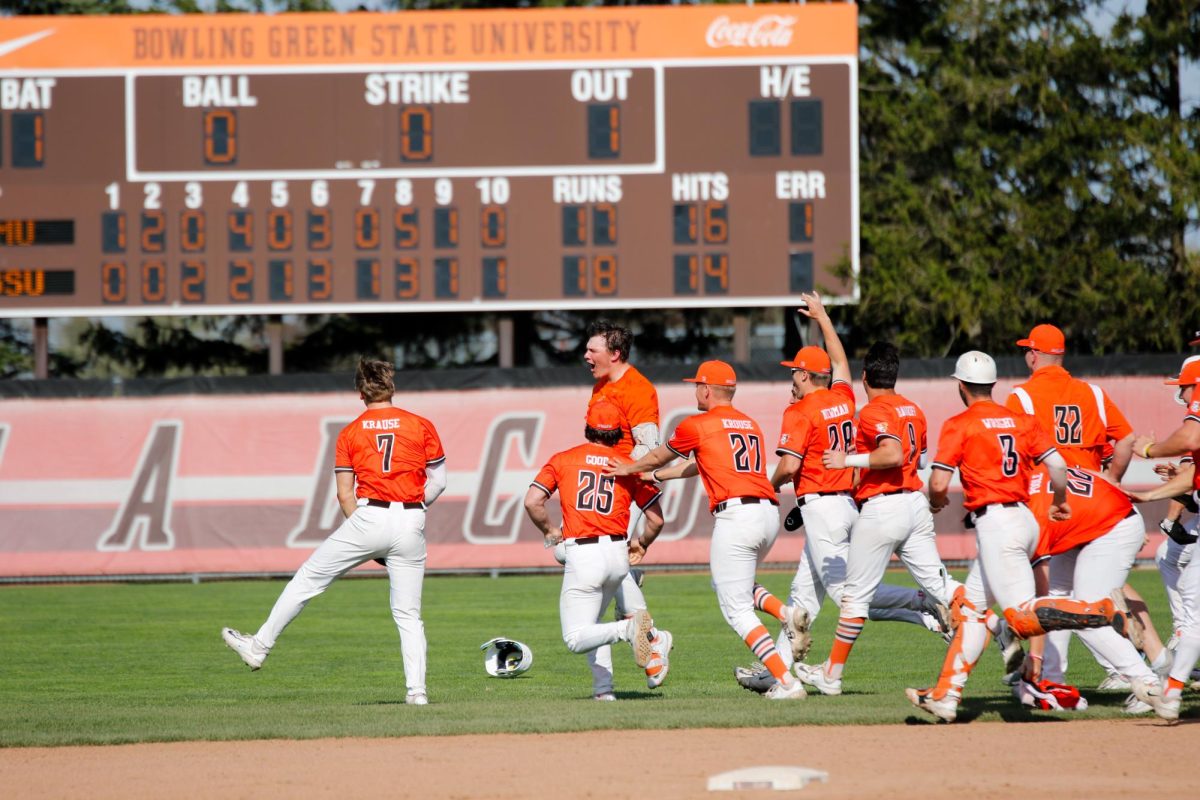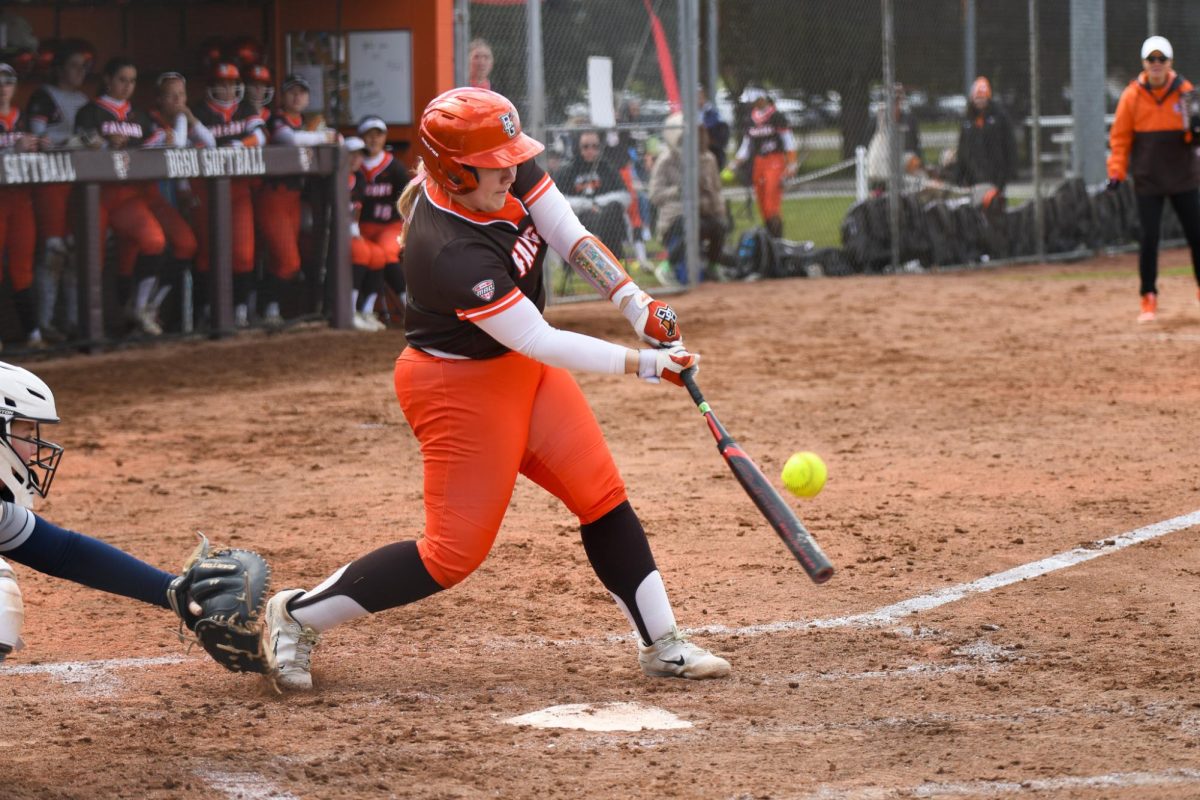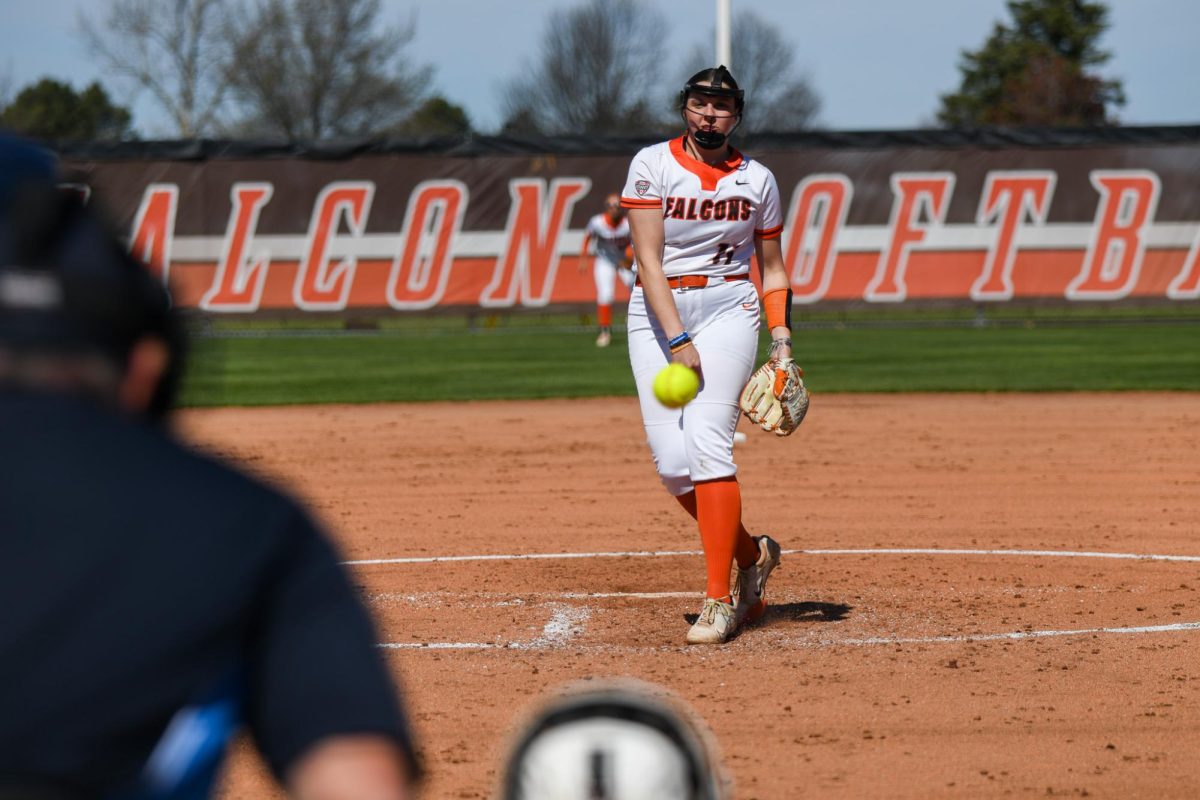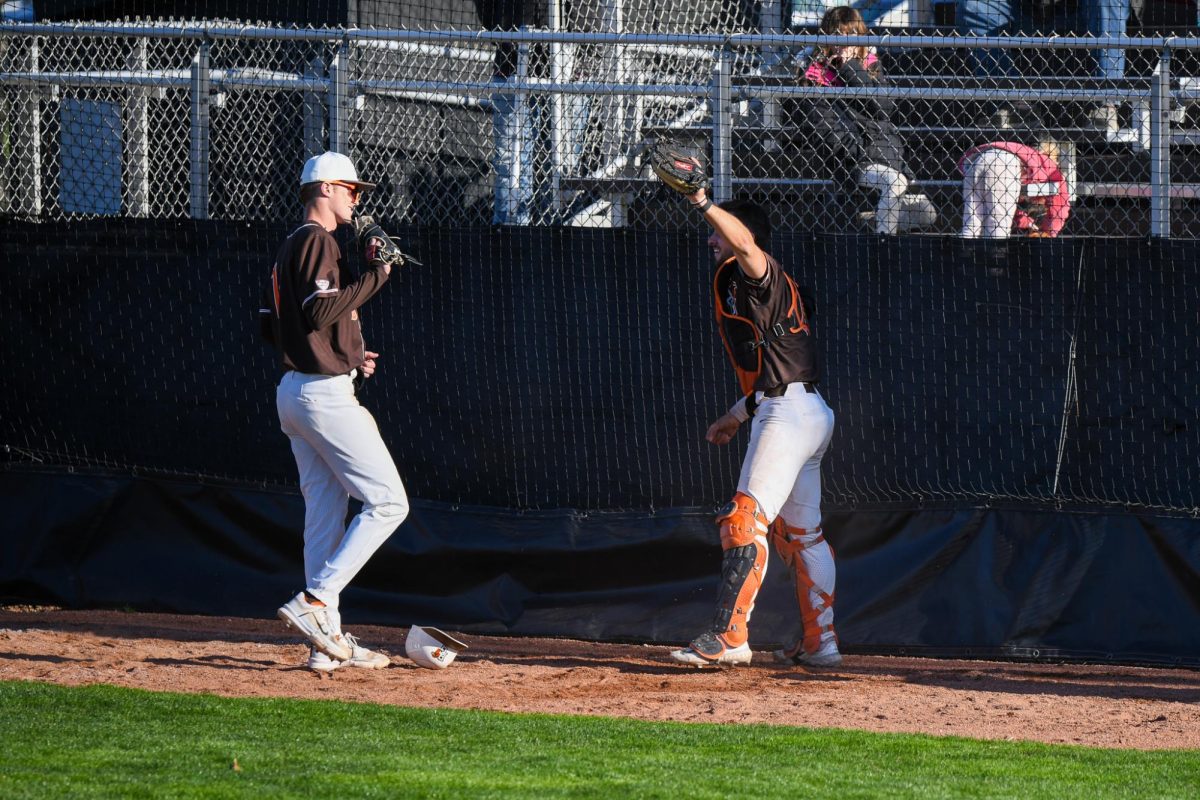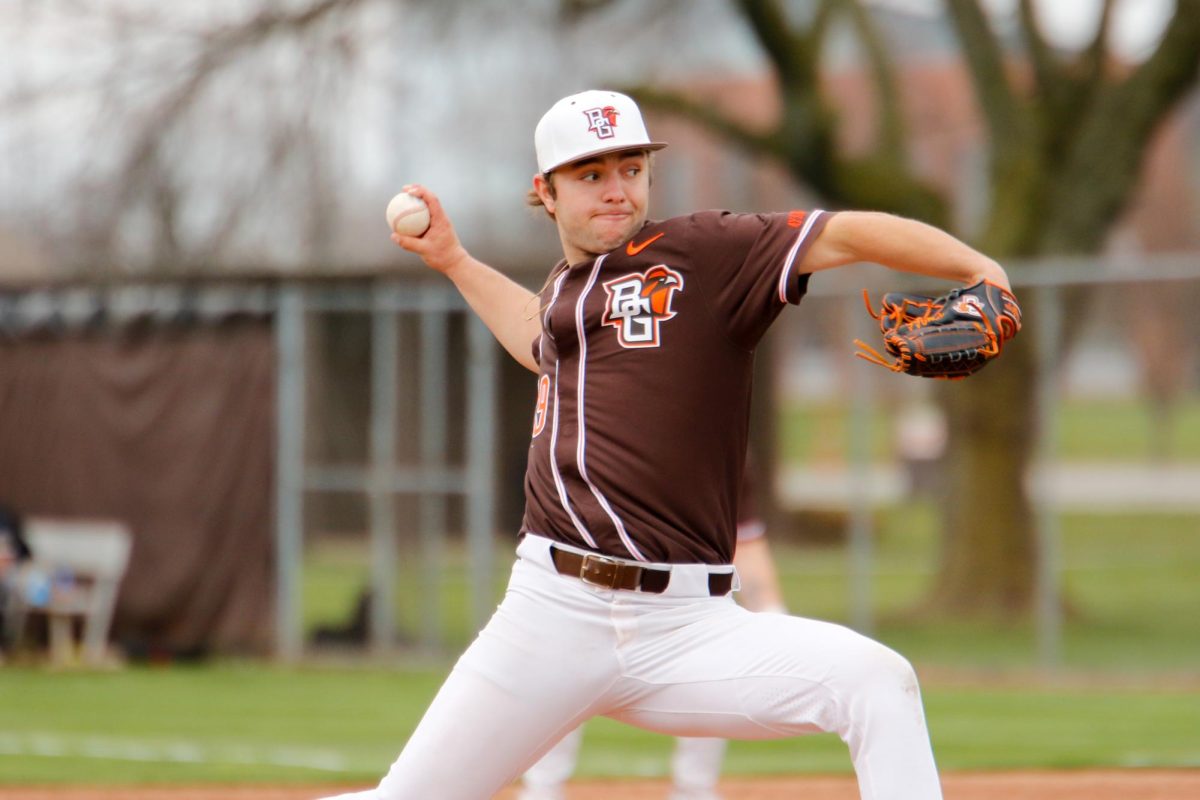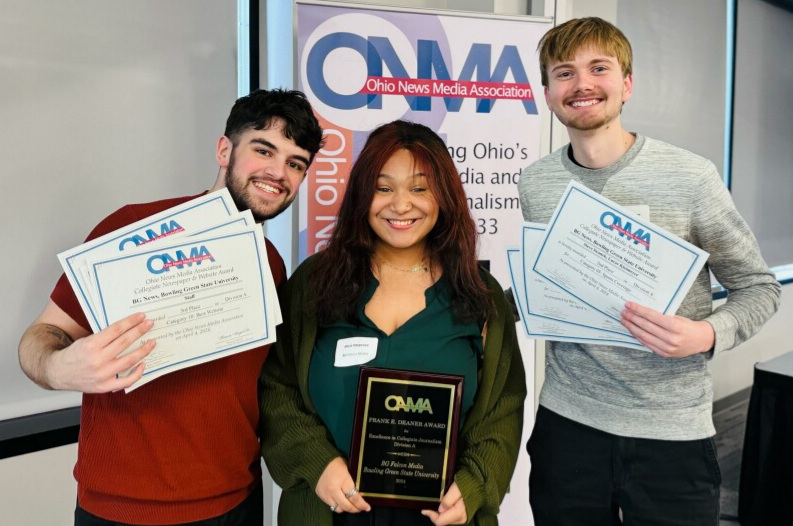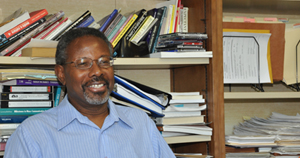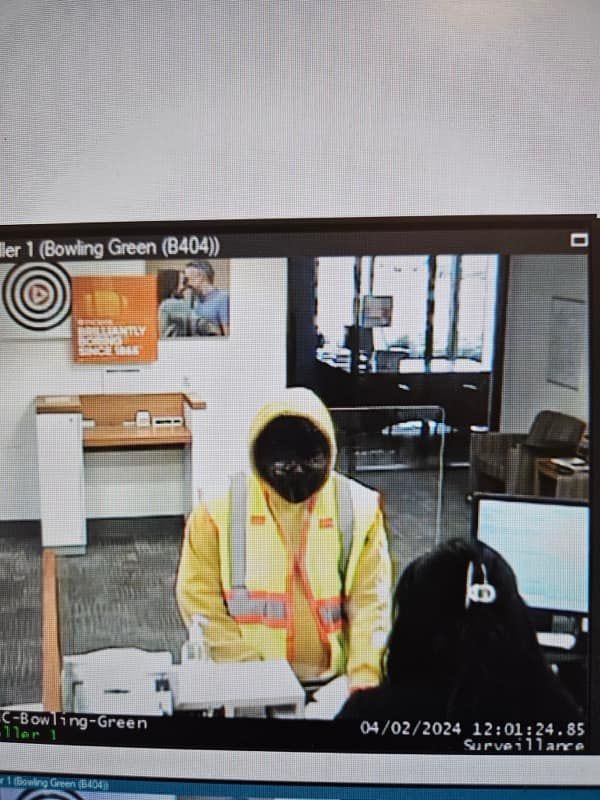A panel of six University and Bowling Green Police Department (BGPD) police officers discussed how they plan to foster a better relationship with students and the University on Tuesday.
The event, which was held in the Union theatre at 6 p.m., was co-sponsored by the Office of Multi-Cultural Affairs Ethnic Study Center and the Office of Residence Life SMART Program.
Krishna Han, Assistant Director for the Office of Multi-Cultural Affairs, said this event is to make people feel less paranoid or anxious about police through speaking with them and mingling.
“People can get paranoid about cops and it doesn’t take much,” Han said. “However, we can’t just say ‘don’t be paranoid.’”
Mike Jones, Graduate SMART Program Coordinator, said the event was established to remove the fear of interacting with police officers by doing just that.
“We created this event to show that people are people, even cops.” Jones said. “Students have stated they don’t feel comfortable with cops, but this provides a safe environment to interact and move forward.”
Sophomore Esperanza Rios said she appreciated the panel because it reminded her of her rights.
“I thought it was very informative, especially for minorities,” Rios said.
The officers on the panel included University Police Chief Monica Moll, University police officer Jennifer Loescher, University police officer Daniel Polin, BGPD Chief of Police Tony Hetrick, BGPD Operations Lieutenant Brad Biller, and BGPD police officer Matt Robinson.
The event began with the officers explaining their responsibilities and how they most commonly interact with students.
Hetrick said two common interactions between students and police officers is either downtown or traffic stops.
After touching on the ways police officers and students interact, the officers explained student rights.
Then, the officers answered questions from the audience and explained that the barriers between the community and police can be broken down, when the community sees that police are people too.
“We also get anxious when police officers are behind us,” Moll said.
Moll said she recognizes that her anxiety of getting pulled over is smaller than minority groups because she is “not part of a group that has been traditionally marginalized by police.”
She said it can be difficult to break down barriers in forums.
She said it is easier to break down these walls through informal events where officers and students are casually interacting.
Loescher said the dunk a cop tank that was on campus to support a sorority is an example of how they can do this.
Other possible ideas Moll and Loescher mentioned were a basketball game or a chili cook off.
Hetrick said they do not have as many programs put in place to foster relationships with the students because they have found it more effective to put people in positions where they simply engage with the students.
“The officers of Bowling Green do not resent your presence,” Hetrick said. “You are an integral part of this community.”
The end of the event encouraged conversation between the officers and the audience over food.
During the mingling portion of the event, Han and Jones said they encourage people to interact with the officers not only so they can answer their questions, but also so the fear of interacting with each other can be removed.
Han said he hopes people took advantage of speaking with the officers after the event so they can become more comfortable with each other.
“Hopefully, they are sticking around and mingling for that purpose,” Han said.






